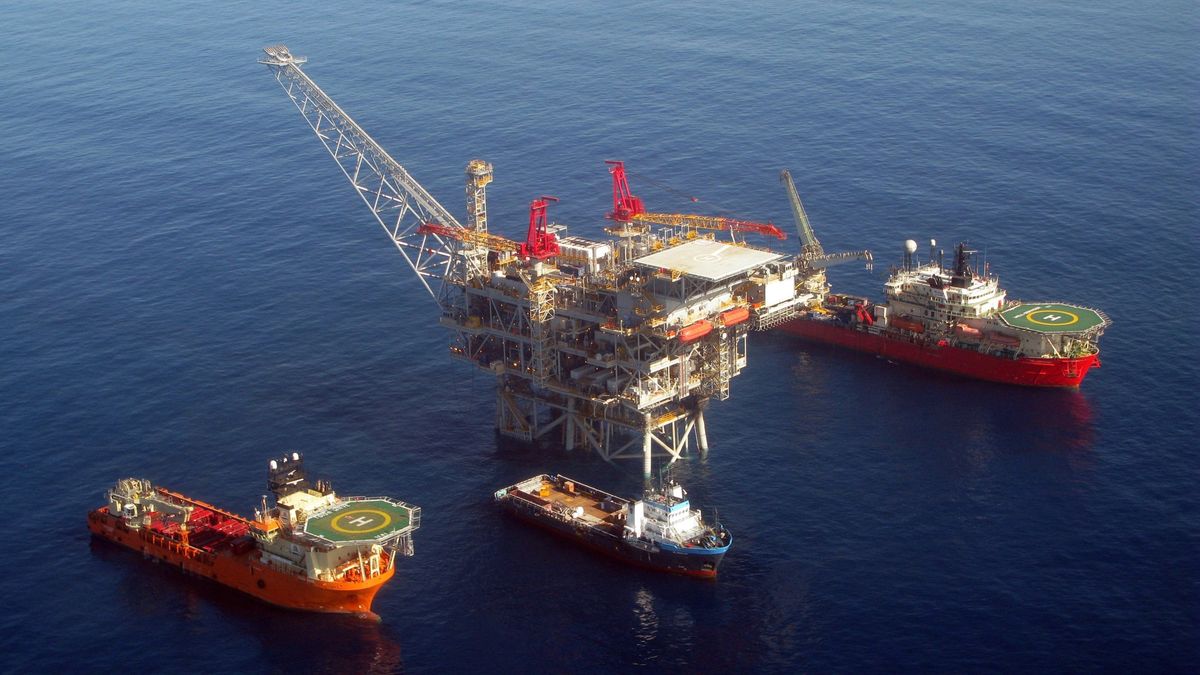The president of the European Comission (executive body of the European Union), Ursula von der Leyen, suggested putting an end to Europe’s dependence on Russian hydrocarbons by 2027.
The crisis in Ukraine makes “Europe a new market, especially for Israel”which had never seen the continent as “a big market,” declared Israeli Energy Minister Karine Elharrar.
Israel began negotiations with the European Union (EU) to determine the amount of gas that could be supplied, as well as the possible deadlines.
Russia is currently the largest supplier of gas to the EU. With around 155 bcm (155 billion m3) shipped each year through different pipelines, Russia accounts for 45% of gas imports and nearly 40% of EU consumption.
Israel recently entered the circle of gas-producing and exporting countries after the discovery in the early 2010s of several gas deposits off its coast, with estimated reserves of around 1 trillion bcm.
Israel “will not be able to replace Russia, but it can certainly be a serious actorlikely to offer Europe more independence and more diversified sources of energy,” former energy minister Yuval Steinitz told AFP.
In total, the countries of the Eastern Mediterranean could soon export to Europe some twenty bcm a year, a good part of which would come from Israel.
But there is a big problem: “we don’t have a gas pipeline to export to Europe,” says Oded Eran, an INSS researcher in Tel Aviv.
Hence the intense negotiations to find a solution. Among the possible options, Israel could send the gas through Egypt, which has gas liquefaction plants, and then export it to Europe in liquid form.
Another option is build a gas pipeline to Turkey, which already has gas infrastructures towards Europe. In January, Ankara, which is resuming ties with Israel after years of diplomatic tensions, said it was willing to cooperate.
This hypothesis would be “the easiest and the least expensive”, and “with the current prices of liquid gas reaching 50, and 60 dollars, it is evident that this channel is economically interesting”, estimates Steinitz.
Another proposal would be east med project, an agreement with Cyprus and Greece on the construction of a 1,800 km underwater gas pipeline. The initial cost of this project would exceed 6,000 million dollars.
Even if the war in Ukraine changes the structure of the energy market, “at the moment it’s a no-win situation,” stresses Elai Rettig, a specialist in energy geopolitics at Bar-Ilan University near Tel Aviv.
“You have to find a client who agrees to pay for a very, very expensive gas pipeline, and this will not happen until we show that we have enough gas to justify this cost,” he told AFP.
Despite Israel’s efforts, for the moment the results seem rather moderate.
And without the existence, in the short term, of a gas pipeline, Oded Eran bets on another alternative: the production and liquefaction of natural gas directly in deep waters through large equipped ships.
This procedure “is still expensive, but feasible in the short term. These technologies already exist in many countries, but it is a question of the availability of these ships. If you have them, you can start operating in a few months,” explains the researcher.
Source: Ambito
David William is a talented author who has made a name for himself in the world of writing. He is a professional author who writes on a wide range of topics, from general interest to opinion news. David is currently working as a writer at 24 hours worlds where he brings his unique perspective and in-depth research to his articles, making them both informative and engaging.




